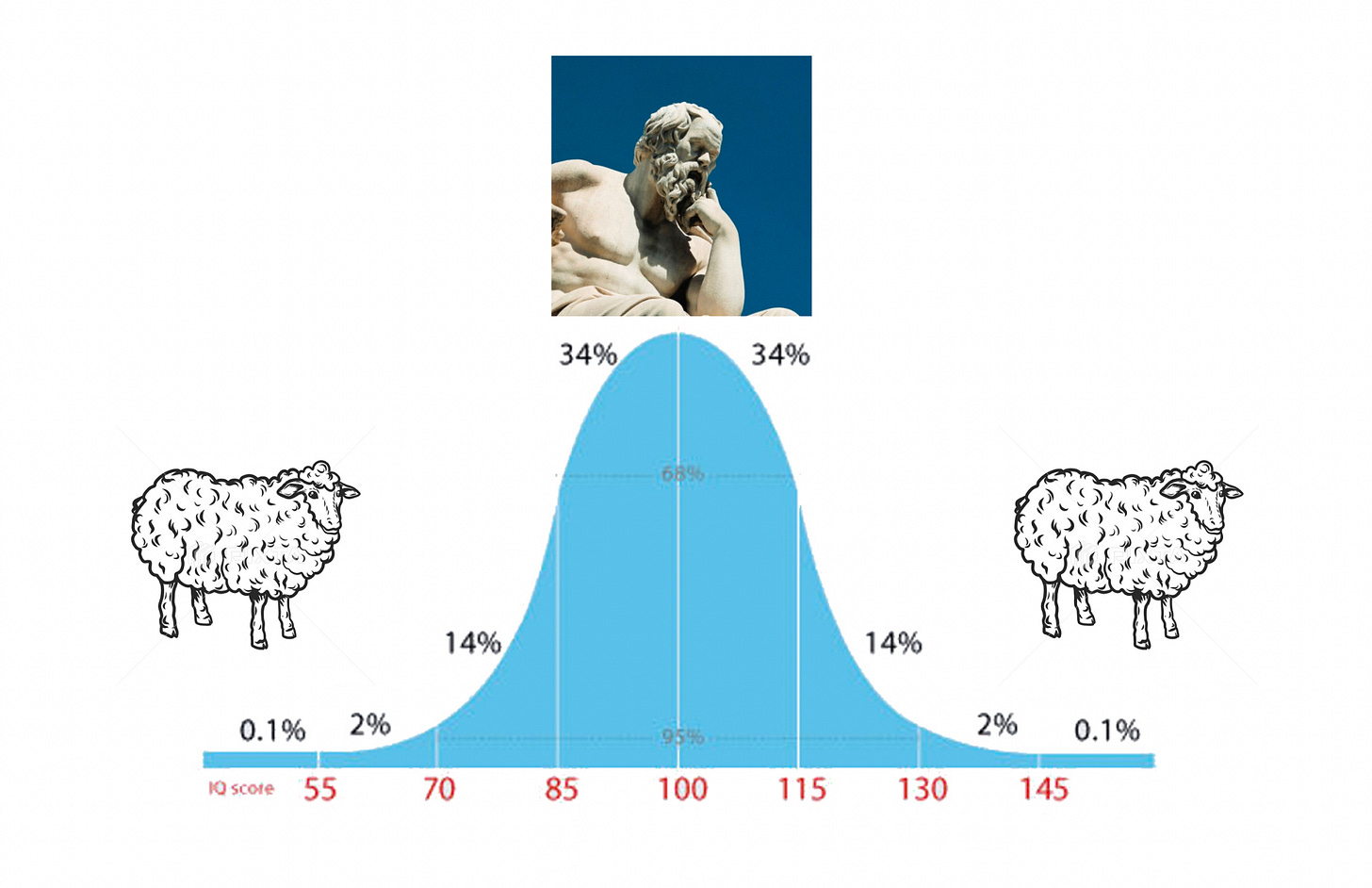How to be a Sheep 🐑🐑🐑
“Sheep-likeness” may be the high point of my intellectual life so far.
“Sheep-likeness” may be the high point of my intellectual life so far.
Um, what?
Let me explain.
I’ve been trying to answer the question “Who truly deserves my trust?”
We must trust someone in order to decide what’s true, because nobody can know everything themselves.
Some deserve trust more than others.
So, who deserves trust?
Ideamarket asked that question collectively, for matters of public knowledge — but I’ve also been asking it personally.
I trust Jesus, so one night last year, I prayed something like this:
“Jesus, I will believe whatever you want me to believe. I don’t need to know everything about UFOs, aliens, etc. I don’t need to reinvent all of philosophy from first principles. I am tired of my self-congratulatory intellectual ambitions. I only need the knowledge you say I need. So please just tell me what to believe, and I’ll believe it.”
Over the next few months, I just happened to fall in love with the Catholic Church, which has been the “Supreme Court” for scripture interpretation from the time of Jesus.
How to be a sheep
Regarding Catholic doctrine, when I dare to say “This doesn’t make sense, but I’ll believe it anyway and see what happens,” I’m repeatedly rewarded.
Yes — at first there is a feeling of suppressing my natural sense of reason. And like most modern intellectuals, I’d always expected suppressing my natural sense of reason would be soul-killing.
But something else has been happening instead. My natural reason is replaced by a transcendent reason, a clarity that emerges only in the hindsight of the trust-fall. Eventually the issue not only makes sense intellectually, but fits in with such perfection that it unburdens me emotionally.
Reduces cognitive load, you might say.
It’s fascinating to watch “deciding to believe something that doesn’t make sense” — which had always seemed to be the quintessential dimwit move — bring more clarity and peace to my intellectual life than all my Ideamarkety risk-reward calculations ever have.
Speaking of dimwit moves, it might be helpful to define the difference:
Scared sheep cling to an old belief out of fear of being wrong, and rationalize it to avoid acknowledging doubts
Trusting sheep accept a new belief out of trust that it’s safe, despite acknowledged doubts
The former is what intellectuals rightly frown upon, the latter is what I’m advocating with respect to Catholic doctrine (I don’t believe anything else deserves this level of trust. More on that later).
Here’s how the process feels:
I consider a traditional Catholic belief that grates on me, that makes me want to object against it.
I say to myself, “God, I trust you, I’ll believe it and set aside my objections and complaints.”
Then the belief percolates for a while. Maybe a few minutes, maybe a few weeks. When I look at it again, I find it has snapped into place — it has become part of a harmonious architecture, where it not only makes sense by itself, but also supports and corroborates a network of other Catholic tenets. And something inside me relaxes from the sheer orderliness and restfulness of this. It feels like being held up by my intellect, instead of having to exert my intellect to contrive coherence from all the paradoxes of the world.
After building a career around independent thinking, I’m finding the best use of my intellect is to re-assume sheephood, for the kingdom of God.
At that time Jesus said, “I praise you, Father, Lord of heaven and earth, because you have hidden these things from the wise and learned, and revealed them to little children.”
—Matthew 11:25




